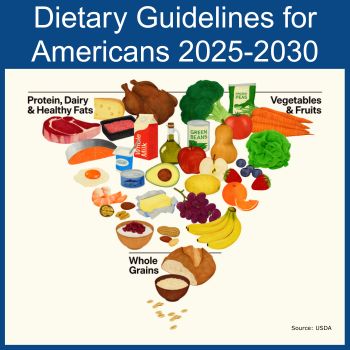 The brain and eyes are intimately connected, and the nutrients essential for eye health are the same as for brain health. A retinal scan can detect the early onset of Alzheimer’s Disease, Parkinson’s Disease, and Multiple Sclerosis before symptoms appear.
The brain and eyes are intimately connected, and the nutrients essential for eye health are the same as for brain health. A retinal scan can detect the early onset of Alzheimer’s Disease, Parkinson’s Disease, and Multiple Sclerosis before symptoms appear.
Numerous studies have shown that dietary factors help prevent brain and eye disease. They have a critical effect on neuronal function and synaptic plasticity. Recent findings have shed light on key processes through which nutrition influences brain health and cognitive performance. Alongside lifestyle factors like physical activity, what we eat has played a significant part in the development of our mental abilities and the evolution of the human brain.
Gut/Brain Connection
The gut and the brain are closely related. For instance, certain gut hormones—whether produced within the brain or transported there from the digestive system—can impact how we think and process information. Additionally, well-known factors involved in synaptic plasticity, like brain-derived neurotrophic factor (BDNF), also act as metabolic regulators, adjusting their activity in response to signals from the body, including what and when we eat. Hormones and peptides like leptin, ghrelin, glucagon-like peptide 1, and insulin don’t just regulate appetite—they also play a role in shaping our emotions and mental functions. Research shows these gut-derived signals can affect both mood and cognition, highlighting their broader impact beyond hunger control.
The relationship between food and our mental state begins even before a meal. Simply seeing or smelling certain foods can shift our mood by triggering emotional responses in the brain. Once we eat, the body releases hormones and peptides—including insulin and glucagon-like peptide 1 (GLP-1)—that travel to brain areas like the hypothalamus and hippocampus. 1 There, they set off signaling pathways that can impact learning and memory.
What is Synaptic Plasticity and Why Is it Important
Synaptic plasticity is the brain’s capacity to adjust the strength of connections between its neurons. This dynamic process is key to how we learn, form memories, and carry out a range of cognitive tasks.
Brain and Diet
A recent study co-authored by researchers at Ben-Gurion University, Harvard T.H. Chan School of Public Health, and the University of Leipzig evaluated the benefits of different diets on brain aging. Neurological conditions, including mild cognitive impairment and Alzheimer’s Disease, have been associated with accelerated brain aging.
The participants consumed one of three diets: a standard healthy diet; a traditional calorie-restricted Mediterranean diet, which was low in simple carbohydrates, rich in vegetables, and replaced red meat with poultry and fish; and the green-Mediterranean diet, which additionally included green tea and Mankai.
Researchers found that higher levels of certain proteins were associated with accelerated brain aging. They found that those protein levels decreased in participants who followed the Green Mediterranean diet.
By mapping these protein signatures, new insight can be gained into how interventions, such as diet, may help preserve cognitive function as we age.
The researchers hypothesized that the protective effect of the diet could result from the anti-inflammatory molecules in green tea and Mankai. Mankai is a type of duckweed, a tiny aquatic plant rich in nutrients. It is also known as Wolffia globosa.
Inflammation is a key factor in many diseases, including autoimmune diseases, and is often a contributing factor to dementia related diseases as well as eye issues.
Nutrients for Brain Health
Vitamins and Minerals
Minerals and vitamins play a critical role in brain health—particularly B6, B12, and folate. Sufficient folate levels are vital for proper brain function, and a lack of this nutrient has been linked to neurological issues like depression 2 and cognitive decline.
B Vitamins
Supplementing with folate—on its own3 or alongside other B vitamins45—has been shown to help protect against cognitive decline and dementia as we age. It can also enhance the effectiveness of antidepressant medications. 6 In fact, a recent randomized clinical trial found that taking folic acid for three years may slow down the age-related drop in cognitive abilities. 7
Fats and Oils
Healthy fats, particularly EPA and DHA found in omega-3s, are crucial for brain health. Human studies have shown that diets high in omega-3 fatty acids can boost cognitive function and support overall brain health. 8 Similarly, research with rodents consistently shows that a lack of omega-3s leads to problems with learning and memory. 9 10
Not getting enough omega-3 fatty acids in the diet has been linked to a higher risk of various mental health conditions in humans, such as attention-deficit disorder, dyslexia, dementia, depression, bipolar disorder, and schizophrenia. 11 12 13 14 15
Omega-3 fatty acids, found in foods like fish, nuts, and seeds, play a vital role in promoting brain cell growth and reducing inflammation. Docosahexaenoic acid (DHA) is the most prevalent omega-3 in brain cell membranes and the retina. 16 Since our bodies aren’t very efficient at making DHA on their own, it’s essential to get enough through our diet. 17
DHA makes up over 30% of the phospholipids in the brain’s plasma membranes, making it essential for preserving membrane structure, neuronal activity, and synaptic performance. Getting enough DHA from your diet is crucial for maintaining proper function of membrane ion channels and supporting receptors that drive synaptic signaling and cognitive function.
Alpha Lipoic Acid
Alpha lipoic acid, present in organ meats like kidney, heart, and liver, as well as in vegetables such as spinach, broccoli, and potatoes, acts as a coenzyme that helps maintain energy balance within the mitochondria. 18
Research has shown that alpha lipoic acid can help improve memory deficits in animal models of Alzheimer’s disease. 19 In addition, small clinical studies suggest it may help slow cognitive decline in people living with Alzheimer’s. 20
Vitamin E
Vitamin E, also known as alpha-tocopherol, has been linked to cognitive health—lower levels in the blood are associated with poorer memory in older adults. 21 You can find plenty of vitamin E in foods like vegetable oils, nuts, leafy greens, and fortified cereals.
Turmeric / Curcumin
Curcumin, a powerful antioxidant, has been found to help reduce memory deficits in animal models of Alzheimer’s disease 22 and brain injury. 23 It appears to protect the brain by guarding against lipid peroxidation 24 and damage from nitric oxide-based free radicals. 25
Effects of Food on Brain Chemistry
Antioxidants
Antioxidants found in fruits, vegetables, and whole grains help protect the brain by fighting oxidative stress, a process that can harm brain cells over time.
Glucose
Glucose, which comes from carbohydrates, is the main source of energy for the brain. Interestingly, the brain produces its own insulin to help regulate glucose levels and ensure a steady supply of fuel for optimal function.
Proteins
When we digest proteins, they’re broken down into amino acids—these building blocks are essential for creating neurotransmitters, the chemical messengers that influence mood, memory, and learning.
Processed, Junk Food, and Sugars
Eating a lot of processed foods, junk food, and added sugars can trigger inflammation and oxidative stress, leading to changes in brain chemistry that may increase the risk of cognitive decline and mental health challenges.
Unhealthy Fats
Diets high in saturated fats are increasingly recognized for depleting the brain’s molecular resources needed for healthy cognitive function and raising the risk of neurological problems. 26
In the past century, Western diets have seen a sharp rise in saturated fats, linoleic acid, and trans fats, while omega-3 intake has dropped significantly. This shift may help explain why rates of major depression are higher in countries like the United States and Germany. 27 This is primarily due to the substantial increase in grain intake, including bread and pasta.
The imbalance between omega-3 and omega-6 fatty acids has also been implicated in the increased incidence of inflammatory health conditions.
Specific Examples of Foods that Promote Brain Health
Fruits and Vegetables: Rich in vitamins, minerals, and antioxidants, these foods promote brain health and reduce inflammation.
Whole Grains: Provide complex carbohydrates and B vitamins, supporting brain function and energy levels.
Healthy fats: Nuts, seeds, and fish are great sources of healthy fats that help shield brain cells and support sharper cognitive abilities.
Drinking too many sugary beverages and eating lots of processed foods can cause inflammation in the brain, weaken memory, and heighten the risk of developing neurodegenerative diseases.
Energy Metabolism Related to Cognition
The brain uses a considerable share of the body’s total energy, making the pathways that deliver fuel from food to neurons essential for healthy brain function. How neurons manage this energy can directly influence synaptic plasticity, which is key for learning and memory. 28
The visual system to maintain optimal health requires approximately 25% of the nutrients taken into the body, while the brain requires approximately 50%. Deficiencies in essential nutrients can lead to eye diseases such as macular degeneration, glaucoma and even cataracts for example.
Both diet and physical activity influence how mitochondria produce energy, which is crucial for maintaining neuronal activity and supporting healthy synaptic function. When combined, specific dietary choices and regular exercise can further boost synaptic plasticity and enhance cognitive performance.
Numerous studies have shown the benefits of regular exercise related to enhanced memory, 29 30 enhanced mental capacity of young adults, 31 and even the facilitation of functional recovery after brain injury or disease, 32 and promotes new brain cell growth (neurogenesis).
Essential Nutrients
A range of vital nutrients is necessary to keep the retina and optic nerve healthy, which, in turn, supports good vision. Many of these nutrients can also cross the blood-brain barrier, helping to maintain brain health and lower the risk of both eye and neurological diseases.
Some of these important nutrients include alpha lipoic acid, ashwagandha, bilberry, B vitamins, CoQ10, ginkgo biloba, glutathione, lutein, magnesium, N-acetyl-cysteine, omega-3 fatty acids, pine bark extract, resveratrol, taurine, turmeric, vitamin C, and zeaxanthin.
Great choices for supporting both eye and brain health are berries—including blueberries and goji berries—pomegranate, a variety of mushrooms like lion’s mane, reishi, and shiitake, as well as plenty of leafy green vegetables.










